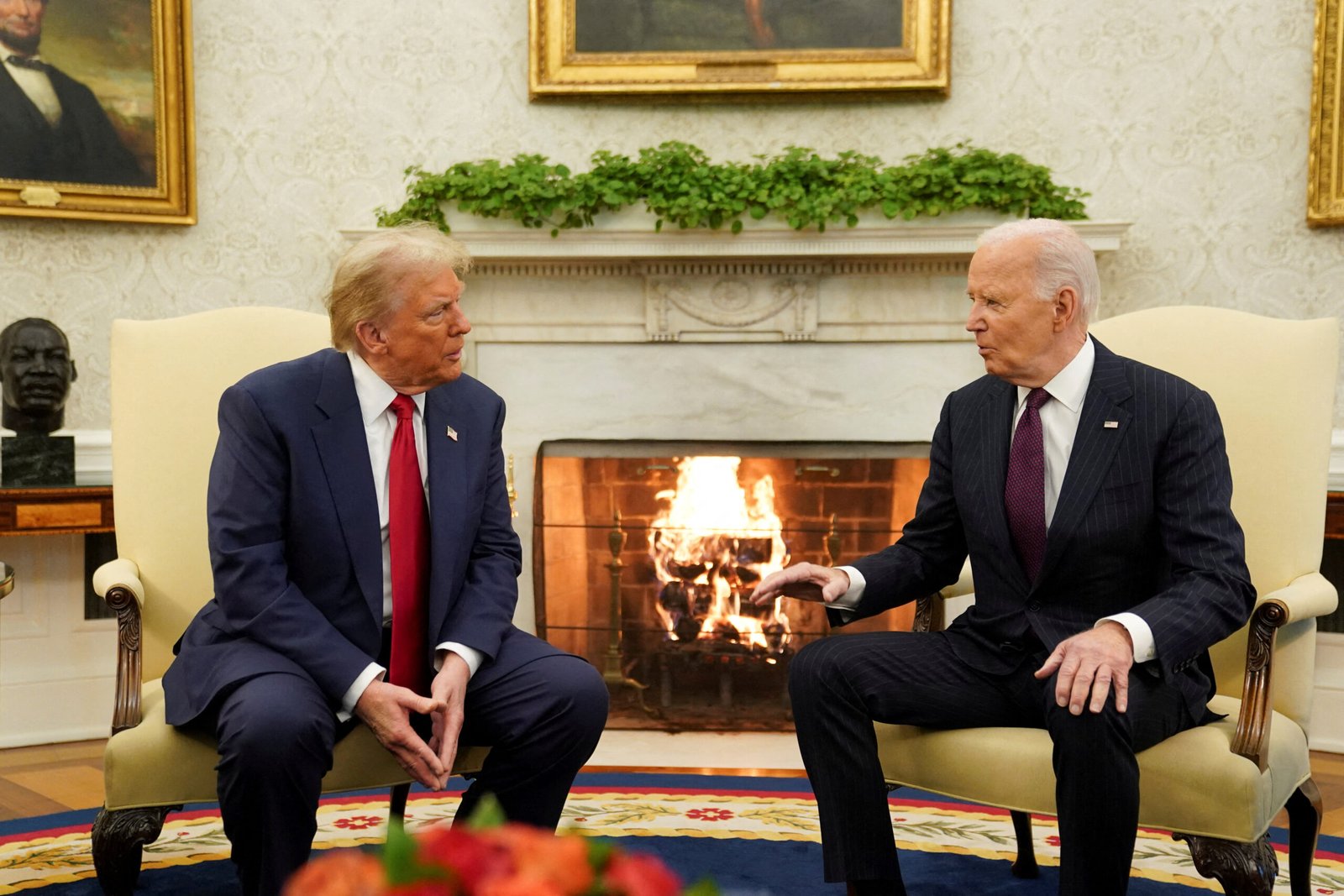In the final days of his presidency, U.S. President Joe Biden is enacting a series of new policies that restrict Russian energy and target China’s shipbuilding and chip manufacturing, while a ceasefire in Gaza is reportedly imminent following months of fruitless negotiations.
Before Republican Donald Trump takes office on January 20, the Biden administration is clearing the decks by concluding investigations and releasing new policies. According to officials and analysts, these actions will generally help the incoming Trump administration by providing it with increased negotiation leverage against countries like China and Russia.
Within a week, the Biden White House has imposed sanctions on Russian oil companies and vessels, limited the sale of semiconductor chips, declared Chinese shipbuilding methods to be unfair, given over federal land for artificial intelligence institutes, and solidified plans to virtually ban Chinese automobiles.
Biden’s last-minute announcements are part of his “trying to define how history will remember him,” according to Robert Rowland, a professor of presidential rhetoric at the University of Kansas. He claimed that by doing this, “he is giving Trump a lot of leverage,” and that Biden might not be doing himself any favors.
Biden “should have been doing these things a year ago if he wanted to burnish his legacy.” Now it is too late,” Rowland continued. On Wednesday night, Biden will give a farewell address from the Oval Office.
According to political strategists, the Biden team is laying the groundwork for certain almost final actions that Trump might take to carry out campaign pledges that helped Republicans defeat Democrats in every battleground state during the U.S. election.
For instance, sources informed Reuters that the Biden administration’s study of Chinese shipbuilding recently found that Beijing unfairly disadvantaged U.S. shipbuilders through coerced technology transfers, financial support, and intellectual property theft.
The results of the investigation, which was carried out in accordance with Section 301 of the U.S. Trade Act, give Biden the opportunity to claim responsibility for holding Beijing responsible while paving the road legally for Trump to fulfill his pledge to increase tariffs on China.
“In many ways, this is a test case for what we need to do domestically in terms of industrial policy to correct for decades of laissez-faire globalization,” said one Democratic source following the probe. Republicans would be smart to use the probe to further their own plans, the source added.
PLUSES AND MINUSES
Biden officials claim that in certain instances, including as the recently imposed strict restrictions on Russian oil, they are purposefully favoring Trump. However, the long-term effects might be more nuanced.
Regarding how Biden’s last actions might help Trump, the White House and the Trump transition team chose not to comment.
Jake Sullivan, Biden’s national security advisor, stated on Monday that Trump would have more negotiating power in peace talks with Russia if he increased sanctions on Ukraine.
As he put it, “The new administration is preparing for a negotiation, and in a negotiation, you need leverage, and part of that power has to come from the kind of economic pressure that makes (Russian President Vladimir) Putin know he is going to continue to pay a substantial price”
Trump advisors had been briefed about the plan beforehand, but it was not coordinated, Sullivan told reporters.
Additionally, Trump’s administration is left to handle any rise in gas costs due to the time. Oil prices have reached four-month highs in the days after the penalties were announced.
According to Sullivan, Biden’s staff determined that oil prices had sufficiently decreased to allow for more aggressive measures. Oil prices peaked at over $100 per barrel following Russia’s invasion of Ukraine in 2022 and have since fallen to about $80.
According to him, Biden did not think Treasury could “strike Putin’s pocketbook without… taking too big a whack out of the American people’s pocketbook” with the new sanctions.
Prominent Biden officials claim to have briefed the Trump team on topics such as the Gaza hostage negotiations, fighting Chinese cyber-espionage, and Russian sanctions and artificial intelligence technology regulations. On Monday, Sullivan stated that Biden had assigned him the responsibility of closely collaborating with Trump’s team.

Despite Trump’s constant harsh criticism of Biden, even after his election victory in November, it has been a part of Biden’s larger strategy that places a high priority on a seamless transition. Republicans suggest they could refuse federal aid to California, a Democratic bastion that is currently experiencing a fire, while Trump appointees and advisers continue to threaten to demolish the federal workforce.
The hope inside the White House, however, is to create “new options so that a new team and Congress can really hit the ground running,” one Biden official said.
(Reporting by Andrea Shalal and Trevor Hunnicutt in Washington and Jarrett Renshaw in Philadelphia; Editing by Heather Timmons and Matthew Lewis)














